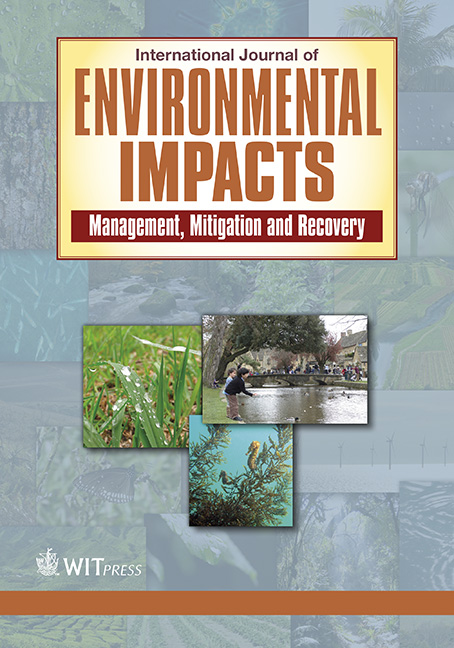Consumer awareness and knowledge about food sources and possible environmental impact
Price
Free (open access)
Volume
Volume 2 (2019), Issue 1
Pages
11
Page Range
85 - 96
Paper DOI
10.2495/EI-V2-N1-85-96
Copyright
WIT Press
Author(s)
S. Wunderlich & M. Smoller
Abstract
This study investigates consumer awareness and knowledge about two methods of food production and possible environmental impact, specifically organic farming and genetically modified or engineered food production. Consumers are often unaware of the details of the first step of the food supply chain, which is the food production method and its environmental impact. It is believed that organic farming causes the least damage to the environment as it uses no pesticides or herbicides in agriculture. However, genetically modified food is used frequently in the United Sates to increase yield and to meet the growing demand for food. Consumers generally are becoming more interested to learn about the food they purchase and the possible environmental impact of how it was produced. An online survey was conducted to evaluate consumers’ knowledge about the production systems and their preferences. Two hundred and four adult participants answered all the questions on the survey. The survey questions included demographic data and general questions about their knowledge of and their beliefs regarding different food production systems, particularly the genetically modified food and potential environmental impact. Almost half (48%) of the participants believed that genetically modified food production has a harmful impact on the environment, while 31.4% had no knowledge about this method of food production and possible environmental impact. A χ2 test showed a significant association between preference for non-genetically modified food and individuals’ beliefs on how this food production system may impact the environment (χ2 (1) = 29.592, p = 0.001). Seventy-five percent, of the 98 participants who believed that genetically modified food production has a harmful impact on the environment, preferred foods to be labeled. A majority (almost 80%) of participants acknowledged that their food purchasing decisions are contingent on the method of food production and its possible impact on the environment.
Keywords
consumer preference, education, environment, genetically modified organism (GMO), Green Food Supply Chain (GFSC), labeling, organic, purchasing decisions, sustainability.




